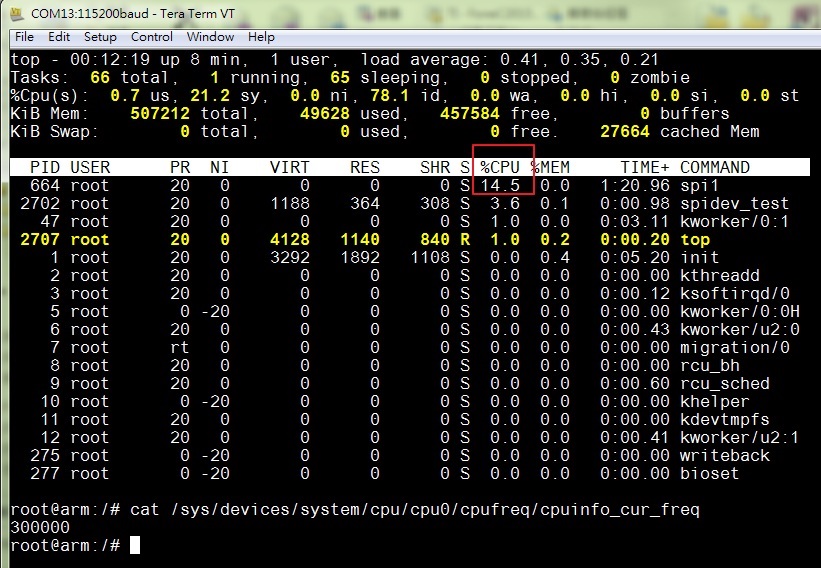Dear Sir,
I tested the spidev_test in the kernel/Documentation/spi/spidev_test.c and use top to check the CPU loading.
just adding a while loop to continue the SPI transfer.
CPU is fixed at 1Ghz, testing at both EZSDK7, and 8.
1. When SPI clock is set 500Khz as default, the CPU usage is 14.6%.
2. When SPI clock is higher like 24Mhz, the CPU usage can be reduced obviously.
It looks like the time is took by spi1 driver doing the I/O.
Is this result normal that I get a really high CPU loading when using a 500Khz SPI transfering? (My client need it to work at a lower frequencies.)
I saw the DMA channel defined in the am33xx.dtsi.
Isn't the DMA enabled and I can get a lower CPU usage for this I/O read/write?
Thank you.







